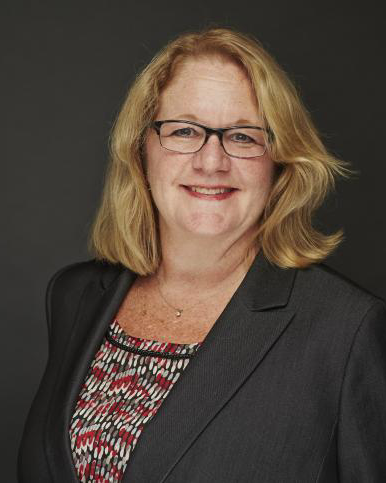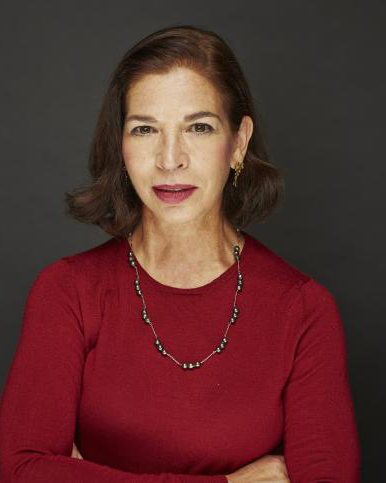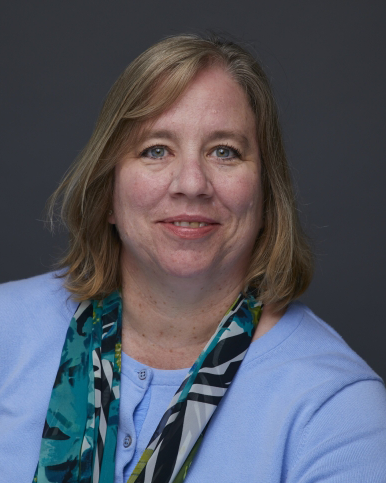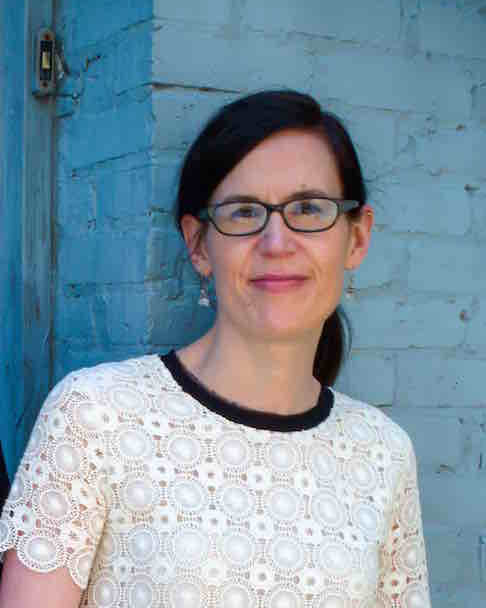On-Demand Webinars
To view an on-demand webinar, please select a webinar, click “register” on the left side, and submit your information. After registering, you will be brought to a new page. The link to the recording of the webinar will be found on this page under “Event Information.”
Outcomes from the National Academy of Medicine’s Action Collaborative on Countering US Opioid Crisis
May 05, 2023
2:00 PM - 3:00 PM (ET)
Webinar Details
As the opioid crisis continues to evolve, educational stakeholders may not be sufficiently aware of strategies developed by the National Academy’s Action Collaborative on Countering the US Opioid Crisis to support their faculty and students. Join us for this interactive webinar presented by the co-chairs of the Action Collaborative’s Health Professions Education and Training Workgroup to learn about the current state of the crisis, tools, and strategies developed by the action collaborative, and legislation that will require action by APRN licensees.
Objectives:
- Describe tools and strategies developed by the Action Collaborative to support healthcare professional educators in addressing the US opioid crisis.
- Educational stakeholders can implement at least one tool or strategy within their practice settings.
Note: Recording of the webinar will be available soon after the webinar airs. Visit AACN's On-Demand Webinars to watch.
Implementation of the Essentials in RN to BSN Programs
April 26, 2023
2:00 PM - 3:00 PM (ET)
Webinar Details
To align with the 2021 AACN Essentials, RN to BSN programs must prepare graduates to meet all entry-level (Level 1) competencies. These programs should be designed to build on previous learning and bridge educational gaps, ensuring that all new competency expectations are met. By the end of this presentation, led by James Madison University nurse educators Dr. Karen Jagiello and Dr. Jamie Robinson, faculty will gain a clearer understanding of how to implement the Essentials in a degree-completion program and deploy teaching strategies and methods to assess student competency.
Objectives:
- Discuss opportunities and challenges that are unique to RN to BSN degree completion programs
- Explore moving beyond a curriculum crosswalk toward course-level integration of the Essentials
- Explore approaches to integrating the Essentials and competency-based education into RN to BSN programs
Postdoctoral Education in Nursing: Types, Goals, and Opportunities
April 25, 2023
2:00 PM - 3:00 PM (ET)
Webinar Overview
The postdoctoral education is important for nurses interested in pursuing a career in a research-intensive setting. The webinar will focus on different types of post-doctoral education programs, goals for such programs, and employment opportunities for program graduates. The discussion will center on the importance of aligning personal and professional goals with the type of the postdoctoral education program and negotiating roles, responsibilities, and deliverables with program faculty. The roles of peer, professional, and research mentors will be explained.
Objectives
Upon completion of this webinar, learners will be able to
- Discuss the different types of postdoctoral education programs and experiences.
- Explain the importance of aligning personal and professional goals with the type of postdoctoral education.
- Describe postdoctoral education career pathways and opportunities.
 This Webinar is hosted by the Graduate Nursing Student Academy (GNSA). For more information on the GNSA, visit www.aacnnursing.org/GNSA.
This Webinar is hosted by the Graduate Nursing Student Academy (GNSA). For more information on the GNSA, visit www.aacnnursing.org/GNSA.
CNLs: Disrupting the Impact of COVID-19 to Deliver Excellent Care
April 20, 2023
2:00 PM - 3:00 PM (ET)
Webinar Details
Join the Commission on Nurse Certification (CNC) and a panel of certified Clinical Nurse Leaders (CNLs) to hear about efforts to mitigate the lingering effects of COVID-19 even in the most challenging healthcare environments. Find out more about how CNLs are uniquely qualified to advance quality improvement efforts and how their skill set is critical across healthcare settings.
Objectives:
- Explain the unique value of the Clinical Nurse Leader (CNL)..
- Examine how the CNL skill set transcends in different healthcare facilities.
- Discuss how CNLs deliver quality care during COVID-19 and confront burnout.
- Understand CNL evidence-based projects that lead to optimized healthcare nationally and internationally.
- Discuss how data driven methodologies are critical to the CNL.
- Identify examples of the impact of the CNL’s skill set while working in healthcare facilities.
Note: Recording of the webinar will be available soon after the webinar airs. Visit AACN's On-Demand Webinars to watch.
Elevating Nursing’s Impact on Boosting Vaccine Confidence
April 13, 2023
2:00 PM - 3:00 PM (ET)
Webinar Details
As the most trusted profession, nurses have the power to mitigate the impact of COVID-19 and other diseases on communities and to keep patients safe. With funding provided by the CDC, AACN launched a national initiative in 2022 focused on Building COVID-19 Vaccine Confidence Among Nurses and in Communities, designed to educate vulnerable populations about vaccines and dispel health misinformation. To achieve these objectives, AACN provided funding to 10 schools of nursing to help faculty and students have effective conversations about COVID-19 vaccinations and raise consumer confidence. This webinar will highlight the various educational and outreach strategies launched by participating schools to reach at-risk individuals and populations.
Objectives:
- Describe how to prepare faculty and students to have effective conversations on the need for vaccinations.
- Discuss how to increase the capacity of nursing school faculty and students to share credible vaccine information and respond to misinformation on social media.
- Explain strategies to engage with local communities through health departments, community-based organizations, and other groups to target key populations and address vaccine hesitancy.
Note: Recording of the webinar will be available soon after the webinar airs. Visit AACN's On-Demand Webinars to watch.
Connection before Correction: Leveraging the Teacher-Learner Relationship
April 12, 2023
2:00 PM - 3:00 PM (ET)
Webinar Details
At the core of nursing education lies the teacher-learner relationship, a cornerstone of our profession. To achieve the transformation required for the full implementation of the AACN Essentials and the transition to competency-based nursing education, we must reimagine this relationship and our roles as educators. Join nurse educators Dr. Mary K. Fey and Dr. Kate J. Morse in this engaging webinar as they embark on a journey of self-reflection regarding their own careers, challenge assumptions about our students, and explore innovative teaching practices aligned with the AACN Essentials.
Objectives:
- To engage in critical self-reflection about themselves as educators
- Explore our assumptions about our learners
- Embrace new teaching practices to implement AACN Essentials
Self-Care: Managing Your Goals by Taking Charge of Your Health
April 11, 2023
4:00 PM - 5:00 PM (ET)
Webinar Overview
There is nothing more valuable than your own health, especially as a caregiver. Join this webinar as the speaker explores the PURPLE prescription to self-care – Pause, Unwind, Relax, Play, Laugh, and Exercise, Eat Mindfully, Escape, Enjoy, and Engage. Use the tips and strategies shared to achieve your own self-care.
Objectives
- Describe Self Care for caregivers.
- Discuss self-care strategies to take charge of your health.
- Discuss how to manage your goals in daily life using self-care tips.
 This Webinar is hosted by the Graduate Nursing Student Academy (GNSA). For more information on the GNSA, visit www.aacnnursing.org/GNSA.
This Webinar is hosted by the Graduate Nursing Student Academy (GNSA). For more information on the GNSA, visit www.aacnnursing.org/GNSA.
The ART and Science of Feedback in Clinical Education
March 28, 2023
1:00 PM - 2:00 PM (ET)
Webinar Details
Feedback is a fundamental tool of effective teaching and a skill that, though easily learned, takes a lifetime to master. How we interact with each other when we participate in feedback conversations can greatly influence the quality of our relationships and our work, and is critical to our success as team members, clinicians, and educators. This webinar, led by medical educators Dr. Calvin Chou and Kara Myers, introduces an evidence-based model for feedback that emphasizes a relationship-centered, dynamic, bidirectional conversation in the context of a psychologically-safe learning and working environment.
Objectives:
- Define “feedback” in clinical education
- Assimilate literature on feedback into an approach to hosting feedback conversations
- Describe a method of nonjudgmental delivery of feedback
Using Design Thinking to Thread the Social Determinants of Health into Undergraduate Curriculum
March 09, 2023
2:00 PM - 3:00 PM (ET)
Webinar Details
Nurse educators Dr. Mary Jo Vetter, Dr. Karyn Boyar, Dr. Stacen Keating, and Dr. Emerson E. Ea describe how design thinking was utilized as a unifying framework to foster an understanding of the social determinants of health in an undergraduate nursing program. Students utilize design thinking to develop innovative solutions for clinical problems experienced by diverse populations across all spheres of care in a series of four sequenced courses. Details of the teaching strategy and how it supports the acquisition of competencies defined by AACN Essentials are shared.
Objectives:
- Describe how design thinking was utilized as a unifying framework to foster an understanding of the social determinants of health in an undergraduate nursing program.
- Discuss teaching strategies utilized to promote the acquisition of competencies defined by AACN’s Essential Core Competencies for Professional Nursing Education.
- Explore methods to evaluate competency-based student outcomes.
Competency-Based Education: Practical Tips to Move Your Work Forward
February 27, 2023
2:00 PM - 3:00 PM (ET)
Webinar Details
Dr. Nancy O’Neill, Acting Director of the University System of Maryland’s William E. Kirwan Center for Academic Innovation, shares practical tips to move your competency-based education (CBE) efforts forward. In this webinar, Dr. O’Neill will draw on outside resources that can help facilitate the move to CBE. She builds on the paradigm shift concept introduced by Dr. Englander in the AACN webinar “Moving the Needle on Meaningful Competency Assessment,” and covers the refinement of course learning outcomes, a framework for engaged learning to guide course improvement, and the benefits of signature assignments.
Objectives:
- Learn about resources outside of nursing education that can help move your efforts forward
- Identify strategies for course improvement
- Reduce anxiety about the next steps


















